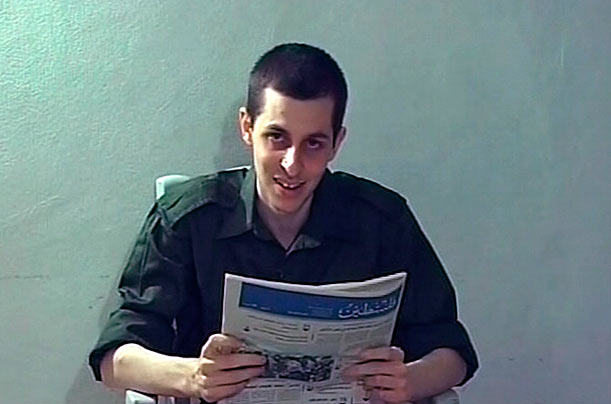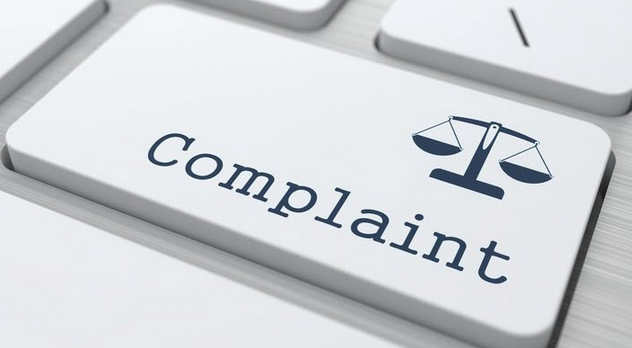A guest post by Oded Ben-Josef, a Freelance writer based in Tel Aviv
The DFID (Department for International Development) is a UK Government department with the laudable goal of promoting sustainable development and eliminating world poverty. The DFID recently launched a new four-year plan to support the Palestinians, and on July 2011, its Minister of State, Alan Duncan MP, visited the Palestinian Authority to promote the project.
A YouTube video from the trip was posted on the DFID site and on YouTube, but was taken down and disabled at some point.
[youtube=http://www.youtube.com/watch?v=xXRhdbjdDY0]
Duncan’s opening comments leave no doubt as to how focused he is on his goal:
“…Behind me is the wall. Well the wall is a land grab. It hasn’t just gone along the line of a proper Israeli boundary.”
To remind us that this is a poverty fighting UK government department and not a Palestinian Information Ministry campaign, Duncan explains further, that the Palestinian men behind him had to queue in the checkpoint since 2am:
“in order to go to work in Israel, where they can get a bit more money […] It is a caged corridor through which they have to go, to get into Israel, so that’s a really really hard way of earning your living.”
Not as hard as trying to earn it at the mercy of the Palestinian Authority itself, apparently.
What frequently puzzles me about some of those well-meaning, agile minded westerners (no irony, really!) is that they never seem to ponder what possessed a country to take such drastic measures.
For, if Israel really is just toying with those Palestinians out of sheer malice, why are they being admitted at all? Israel can simply lock all the gates and let the Palestinian Authority (PA) try to arrange jobs and a future for its people, instead of merely relying on Western donations and (at best) overlooking incitement to violence in the Palestinian media and education system.
After all, Israel already has about 100,000 foreign migrant workers, mainly from the Far East; it can always take a few thousands in place of the Palestinians.
Doubtless it is horrible to have to get up at, well I can’t even bring myself to type that hour again, for work. This is easier to type:
Dear Minister of the Crown, Alan Duncan MP:
Human conflict is not a noble thing, a concept that hopefully is now clearer to you following the August 2011 riots in the UK. Violence always involves the suffering of innocents from all sides involved. If one genuinely wants to resolve issues (as I’m sure you do), it is far more conducive, Minister, to minister to the causes of the conflict rather than apply sticking plasters for its symptoms. The public discourse in the UK seems to have no difficulty in grasping this concept regarding its internal affairs, only on the Mideast are they slow to get it.
Israel has controlled the whole of Judea and Samaria for 35 years before erecting the Separation barrier. If it had been motivated by a desire to annex parts of the area as Duncan claims, this could have been achieved far more easily and cheaply by legislation, as with in 1967 and the Golan Heights in 1981.
In the Golan and inner Jerusalem areas, Israel tore down fences and security implements, but in Judea and Samaria, they were put up. Could this discordant approach be just a normal government-that-wants-to-stay-elected reaction to the waves of terror emanating from some places, in contrast to relatively peaceful coexistence of Jews and Arabs in others?
Later in the video, Duncan adds more ingredients to his broth and stirs:
“Israeli settlers can build what they want, pretty well, and they immediately get the infrastructure, so that takes the water deliberately from Palestinians here.”
“[..] So, the Israelis can build, and this is not their country, but Palestinians, whose country this is, cannot build.”
Duncan doesn’t fail to fail with the usual bandwagon demagoguery, automatically bestowing historical ownership of the disputed land on the Palestinians, without feeling any need to take a minimally balanced view of the conflict.
Firstly, the 2009 construction ‘Freeze’ lasted for over a year, halting ALL Jewish building in the territories – and is now supposedly over, but it remains extremely difficult for Jewish residents in the Judea and Samaria (“settlers” as they are pejoratively referred to) to receive building permissions. Infrastructure for these Jewish communities is also not automatic, but often slow and complicated, requiring layers of government permissions.
Undeniably, demolitions of Arab property frequently get the media spotlight. However, under-reported is the large number of Jewish buildings also destroyed, as building violations are a widespread phenomenon among both populations in Judea and Samaria. What’s more, demolition of Jewish unauthorized structures in eastern, southern and northern Jerusalem (across the ’49 armistice lines – the Green Line) equals or outpaces that of Arab-owned buildings.
Within the Green Line, most Jewish Israelis endure more red tape when closing in a ten foot porch than Americans constructing Cape Canaveral, while Arab towns and villages in Israel essentially ignore permit, zoning and environmental laws, which are largely unenforced there.
Duncan also makes it clear why a quarter of a million Israelis took to the streets in protest of housing shortages, owing partly to the intractable urban/land development bureaucracy, with thousands still camping out for weeks in protest tents, in the largest social protest movement the country has ever known. Stands to reason, as Israelis can just build what they want, wherever they want.
As to the water issue, since Palestinian farmers traditionally dig only shallow wells, and Israelis drill into deep aquifers, the water theft accusation is absurd, especially considering that Israel is the supplier of Palestinian water and other essential services, not the thief – in fact, two to three times more water is provided by Israel than stipulated in the Oslo accords.
Duncan continues:
“The trouble is, if they [the PA] face financial crisis, and at the moment, they can’t even pay their salaries on time, there are things like these basic primary health care centers are going to face a lot of difficulty.”
With half a billion dollars aid money received during the first half of 2010 alone, $1.4bn in 2009 and $1.8bn for 2008, Duncan omits to mention what is at the root of this “crisis”, perhaps because he knows that, alas, it can’t be pinned on Israel. The harsher hammer and anvil pressing the Palestinians is PA corruption on the one hand, and its growing ties with the Hamas terror and incitement movement, on the other, which are causing mounting concern amongst donors.
The video ends by announcing that it is going to be a difficult year for Prime Minister Salam Fayyad and the PA because “A lot of their traditional donors will be looking at their own problems [instead of at other nations]”
One can only hope that both Duncan and the PA, particularly the latter, will also take up that approach, which is the only thing likely to make it a much less difficult year for them – and the entire region.
UPDATE: According to the Jewish Chronicle, a UK Foreign Office (FCO) spokesman insisted that Mr Duncan’s statement “is the government’s position”. The Chronicle sums up:
“So, according to the Foreign Office, Israel is effectively a rogue state, deliberately stealing land and water. It has taken 15 months to find out what this government really thinks. Now we know.”
UPDATE II: As noted above, DFID removed the video in question from YouTube without explanation. We’re trying to find another copy to upload and will keep you posted.





